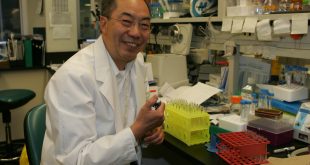It goes as far back as the Assyrians who documented the use of willow leaves for rheumatic inflammation on stone tablets during the Sumerian period, around 2000 BCE. They found that willow leaves and bark reduced fevers and inflammation. Willows naturally produce salicylic acid in response to stress and to help fight against bacterial infection. It’s an anti-inflammatory and anti-bacterial compound metabolized from the salicin in the bark.
By the 1700s in Europe, powdered willow bark was used widely in pain control. By the 1890s, it appeared on pharmacy shelves in the synthesized form of acetylsalicylic acid (ASA) tablets, trademarked by the Bayer Company as Aspirin. In 1948, Lawrence Craven, a California general practitioner, was the first to report a link between ASA and the prevention of myocardial infarction and stroke.
Researchers took this work even further, demonstrating that ASA inhibited the body’s production of clot forming prostaglandins that can lead to heart attack or stroke – receiving the 1982 Nobel Prize in medicine for their efforts.
Patrice Lindsay, Director of Health Systems at Heart & Stroke explains, “ASA has anti-platelet (anti-clotting) properties, which means it can help slow down how fast a clot is forming or help reduce the size of the clot.” She warns, “ASA alone is not enough, and anyone showing signs of chest pain or a heart attack needs to get emergency medical treatment.”
Lindsay says that daily use of ASA is not recommended for preventing a first-time heart attack or stroke. Research has shown that the side effect of ASA – risk of bleeding in your stomach or brain – may be higher than the benefit of preventing a first stroke or heart attack.
For those thinking of brewing up their own cup of willow tea to help with pain, Lindsay explains, “The amount of salicin or ASA obtained by boiling willow bark is unclear and may not meet the minimum required dose to be effective. If you require a specific amount of ASA to treat or prevent a medical condition, it is safer to use commercial ASA with known doses, as the amount released in boiling willow bark is unclear and likely would be lower than what is needed or prescribed.”
It seems ASA’s star has yet to diminish, with several studies now pointing to its potential in lowering the risk of bowel cancer.
Check Also
Harnessing curiosity to uncover the holy grail of immunology
These landmark discoveries, combined with those of his peers, have paved the way for research teams to battle cancer through immunotherapy.
 BioLab Business Magazine Together, we reach farther into the Canadian Science community
BioLab Business Magazine Together, we reach farther into the Canadian Science community





